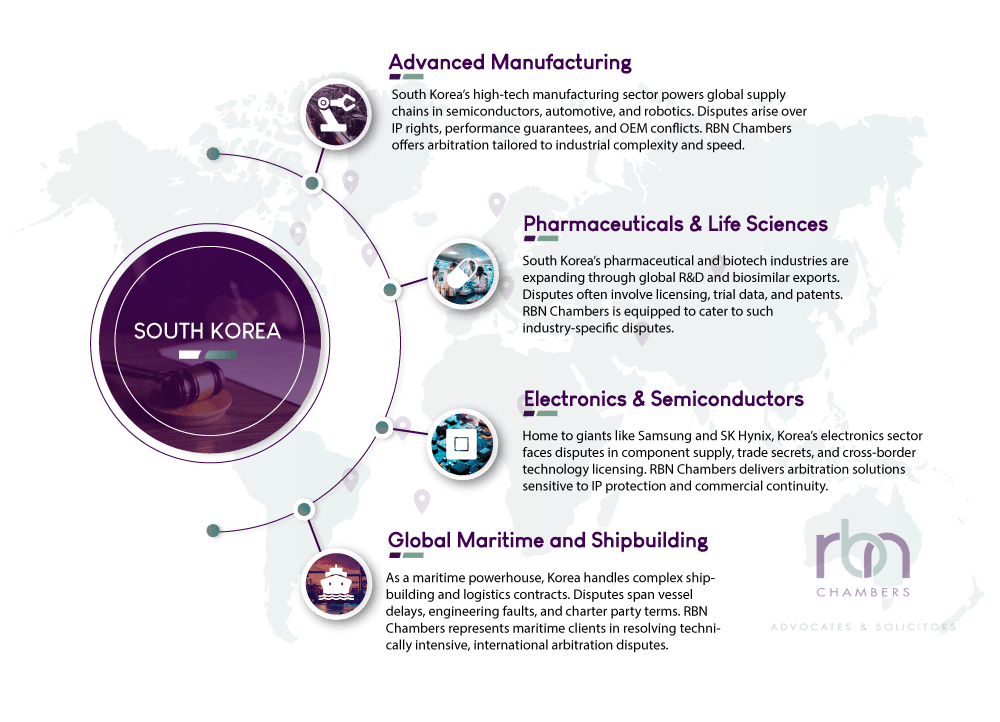Manufacturing and Industrial Base
South Korea's manufacturing sector is a cornerstone of its economy, contributing approximately 24.31% to the national GDP in 2023. Major conglomerates such as Samsung, Hyundai, and LG are deeply involved in international supply chains and licensing arrangements. Disputes in these sectors often involve issues related to intellectual property, joint development agreements, and complex technology transfers. In such contexts, arbitration offers commercial confidentiality, procedural flexibility, and enforceability of awards across jurisdictions under instruments like the New York Convention.


